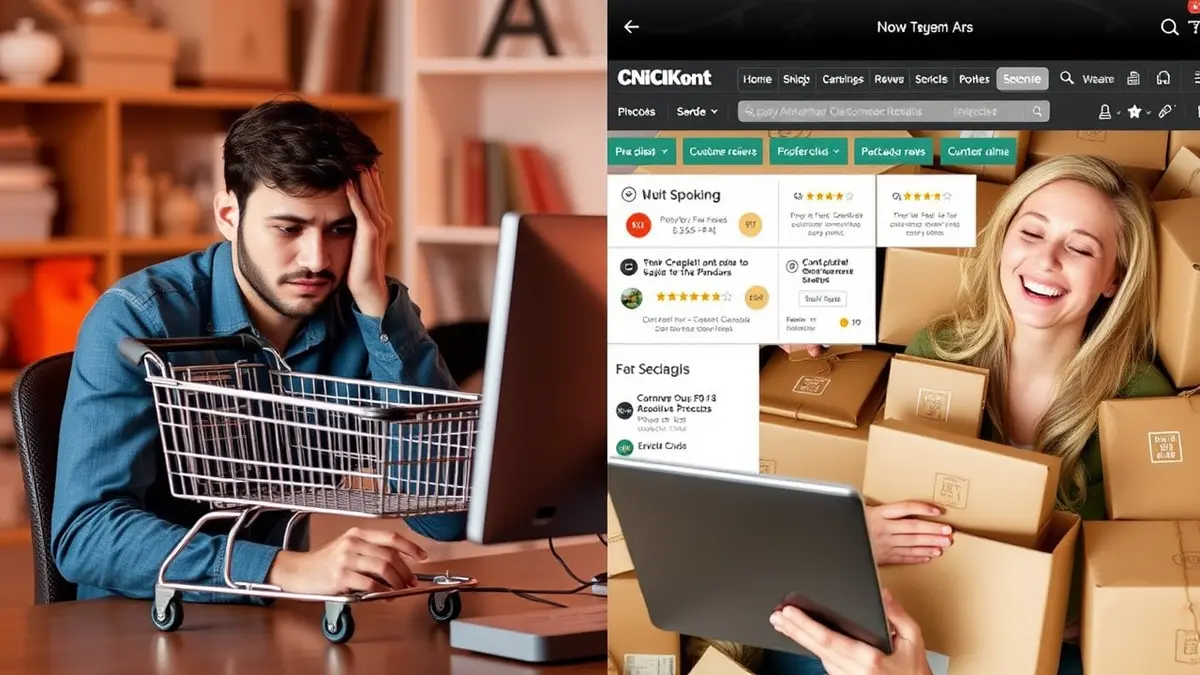For online educators, time is a precious commodity, especially when balanced with the need to find affordable, high-quality resources for their students. This article dives into practical strategies and lesser-known tips to help you source educational materials without breaking the bank – meaning you can get back to actually teaching. Let’s explore how to make every dollar count and enrich your courses simultaneously, shall we?
What You’ll Learn
- The power of open educational resources (OER)
- Navigating library resources beyond books
- Creating your own resources – smartly
- The sharing economy and educational content
- Bargain hunting for used and discounted materials
- Collaborating with other educators for resource sharing
- Free software and tools for educators
- Utilizing free online courses and webinars
- Grant and funding opportunities for educational resources
- Wishmerge: Your daily deal destination for educators
The power of open educational resources (OER)
OERs are teaching, learning, and research materials that reside in the public domain or have been released under an intellectual property license that permits their free use and re-purposing by others. Think textbooks, lesson plans, videos, and even entire courses that are available at no cost – yup, completely free!
Think of it this way: traditional textbooks are like renting a house – you pay for access, but never own it. OERs are like building your own house with freely available materials. You have the freedom to modify, adapt, and distribute them as you see fit.
- Accessibility: OERs level the playing field, ensuring that all students, regardless of their financial background, have access to the same high-quality learning materials.
- Customization: Tailor content to suit your specific curriculum needs. Want to add a local flavor or update outdated examples? Go for it!
- Cost-Effective: Obviously, the price tag is a major draw, which allows you to reallocate funds to other critical areas, like professional development or classroom technology.
- Variety: From STEM to humanities, OERs cover a vast array of subjects and grade levels.
Where to find OERs:
- OER Commons: A digital public library with a treasure trove of free educational resources.
- MERLOT: A curated collection of peer-reviewed online learning materials.
- OpenStax: Offers free, high-quality textbooks for college courses.
For example, imagine you're teaching a history class. Instead of assigning a pricey textbook, you could use OER Commons to find primary source documents, videos, and interactive maps – all at no cost. This not only saves your students money, but also enriches their learning experience by exposing them to a wider range of materials.
Navigating library resources beyond books
Libraries aren't just about books anymore, ya know? (I mean, who even reads physical books anymore? Kidding!) They’ve evolved into hubs of information, offering a plethora of resources that can be goldmines for educators.
- Online Databases: Access a wide range of academic journals, articles, and research papers.
- E-books and Audiobooks: Offer your students digital reading options.
- Streaming Services: Access educational documentaries, films, and music.
- Makerspaces: Utilize 3D printers, laser cutters, and other tools to create custom learning materials.
- Interlibrary Loan: Borrow materials from other libraries if your local branch doesn't have what you need.
A TechCrunch piece last spring highlighted how public libraries are increasingly offering free access to online learning platforms like Coursera and Skillshare. This means your students can earn certificates and learn new skills without paying a dime.
Libraries also host workshops and training sessions on topics ranging from digital literacy to grant writing. These can be invaluable for your own professional development and can help you stay up-to-date with the latest trends in education.
Creating your own resources – smartly
Why buy when you can DIY? Creating your own educational resources can be a rewarding and cost-effective way to tailor content to your specific needs. Plus, it allows you to infuse your personality and teaching style into the materials.
- Identify Gaps: What topics aren't adequately covered by existing resources?
- Start Small: Begin with a single lesson plan or activity.
- Use Free Tools: Leverage free software like Canva, Google Docs, and Audacity to create visually appealing and engaging content.
- Repurpose Existing Content: Adapt and modify OERs or materials you already have.
- Seek Feedback: Share your creations with colleagues and students for input.
I remember one time in '24 when I had to teach a unit on climate change, but the available resources were either too technical or too boring for my students. So, I created my own interactive simulation using Google Sheets. It allowed my students to explore the impact of different policy decisions on global temperatures. Not only was it more engaging, but it also helped them develop critical thinking skills.
Tools to Consider:
- Google Workspace: Create presentations, documents, and spreadsheets collaboratively.
- Canva: Design visually appealing graphics, infographics, and presentations.
- OBS Studio: Record and stream video tutorials and lectures.
The sharing economy and educational content
The sharing economy isn't just for rides and accommodation; it's also transforming the way we access educational content. Online platforms and communities allow educators to share, sell, and exchange resources, creating a collaborative ecosystem.
- Teachers Pay Teachers: A marketplace where educators can buy and sell original lesson plans, activities, and other resources.
- Educational Forums: Online communities where educators can exchange ideas, share resources, and collaborate on projects.
- Social Media Groups: Join relevant groups on platforms like Facebook and LinkedIn to connect with other educators and access shared resources.
Benefits of the Sharing Economy:
- Access to Diverse Resources: Discover materials created by educators from around the world.
- Support Fellow Educators: Purchase resources from other teachers, directly supporting their work.
- Save Time and Effort: Leverage pre-made materials to reduce your workload.
I heard a story about a high school English teacher who created a series of engaging video lessons on Shakespeare. She uploaded them to Teachers Pay Teachers and earned enough money to fund a class trip to London. It's a win-win situation: she shared her expertise, and her students benefited from the experience.
Bargain hunting for used and discounted materials
Who doesn't love a good deal? Hunting for used and discounted educational materials can save you a significant amount of money without compromising quality.
- Online Marketplaces: Check sites like Amazon, eBay, and Craigslist for used textbooks and other resources.
- Thrift Stores: Visit local thrift stores and consignment shops for hidden gems.
- Library Sales: Attend library sales for discounted books and materials.
- Publisher Discounts: Sign up for email lists from educational publishers to receive exclusive discounts and promotions.
Tips for Bargain Hunting:
- Compare Prices: Don't settle for the first deal you find.
- Check Condition: Ensure that used materials are in acceptable condition.
- Consider Digital Editions: E-books are often cheaper than physical copies.
- Buy in Bulk: Purchase materials in bulk to save on shipping costs.
For instance, I know a science teacher who saved hundreds of dollars by buying used lab equipment from a university surplus sale. With a little elbow grease, she was able to restore the equipment to working condition and provide her students with hands-on learning experiences.
Collaborating with other educators for resource sharing
Two heads are better than one, right? (Unless you're a hydra, then maybe a lot of heads are better than one). Collaborating with other educators can expand your access to resources and reduce your individual burden.
- Form a Resource Sharing Group: Create a group with colleagues to pool resources and share materials.
- Attend Conferences and Workshops: Network with other educators and exchange ideas.
- Join Online Communities: Participate in online forums and groups to connect with educators from around the world.
- Co-Create Resources: Collaborate with other educators to develop new materials.
Benefits of Collaboration:
- Access to a Wider Range of Resources: Leverage the collective knowledge and expertise of your peers.
- Reduced Workload: Share the burden of creating and curating resources.
- Enhanced Creativity: Brainstorm ideas and develop innovative materials together.
I spoke with a group of elementary school teachers who formed a resource-sharing group. They met monthly to exchange lesson plans, activities, and assessment tools. Not only did this save them time and money, but it also fostered a sense of community and collaboration.
Free software and tools for educators
In today's digital age, a plethora of free software and tools can enhance your teaching and streamline your workflow.
- Learning Management Systems (LMS): Use platforms like Moodle and Canvas (free version) to create online courses, manage assignments, and communicate with students.
- Video Conferencing Tools: Utilize Zoom (free version), Google Meet, and Skype to conduct virtual classes and meetings.
- Presentation Software: Create engaging presentations with Google Slides, Prezi (free version), and Microsoft PowerPoint Online (free version).
- Graphic Design Tools: Design visually appealing graphics and infographics with Canva (free version) and GIMP.
- Video Editing Software: Edit and enhance videos with OpenShot and DaVinci Resolve (free version).
Examples in Action:
- Use Google Classroom to create a virtual learning environment where students can access assignments, submit work, and participate in discussions.
- Utilize Zoom to conduct virtual office hours and provide personalized support to students.
- Create interactive presentations with Prezi to capture students' attention and enhance their understanding.
Utilizing free online courses and webinars
Free online courses and webinars are a fantastic way to expand your knowledge, learn new skills, and earn professional development credits.
- Massive Open Online Courses (MOOCs): Platforms like Coursera, edX, and Udacity offer a wide range of free courses from top universities and institutions.
- Webinars: Attend free webinars hosted by educational organizations and publishers.
- Professional Development Websites: Explore websites like ASCD and Edutopia for free resources and training materials.
Benefits of Online Learning:
- Flexibility: Learn at your own pace and on your own schedule.
- Accessibility: Access courses and webinars from anywhere in the world.
- Cost-Effective: Expand your knowledge and skills without breaking the bank.
Consider this: a mathematics teacher used a free Coursera course to learn about new teaching methodologies. He implemented these techniques in his classroom and saw a significant improvement in student engagement and performance.
Grant and funding opportunities for educational resources
Grants and funding opportunities can provide you with the financial resources needed to purchase materials, implement innovative projects, and enhance your teaching.
- Government Grants: Explore federal and state grant programs for educators.
- Foundation Grants: Research private foundations that support educational initiatives.
- Corporate Grants: Seek funding from corporations that invest in education.
- Crowdfunding: Launch a crowdfunding campaign to raise money for specific projects or resources.
Tips for Grant Writing:
- Identify Your Needs: Clearly define what you need funding for.
- Research Potential Funders: Find grant opportunities that align with your goals.
- Write a Compelling Proposal: Clearly articulate your project's objectives, activities, and impact.
- Follow Instructions: Adhere to all guidelines and deadlines.
I know an art teacher who received a grant from a local foundation to purchase new art supplies for her students. This allowed her to provide them with a wider range of creative experiences and enhance their artistic skills.
Wishmerge: Your daily deal destination for educators
Speaking of deals, did you know Wishmerge delivers daily handpicked deals, trending products, and unique gift ideas from across the web? Sure, it's not just for educators, but who doesn't love a good deal on everything from office supplies to the occasional (necessary) stress-relieving gadget? If you're searching for the best discounts or gift inspiration with direct links to the lowest prices, bookmark Wishmerge today. Maybe, just maybe, you'll find that perfect thing to elevate your lessons.
By tapping into OERs, libraries, collaborative networks, and a bit of creative resourcefulness, you can provide your students with a rich and engaging learning experience without emptying your wallet. It's about working smarter, not harder – and who knows, maybe even enjoying the process a little more along the way.






